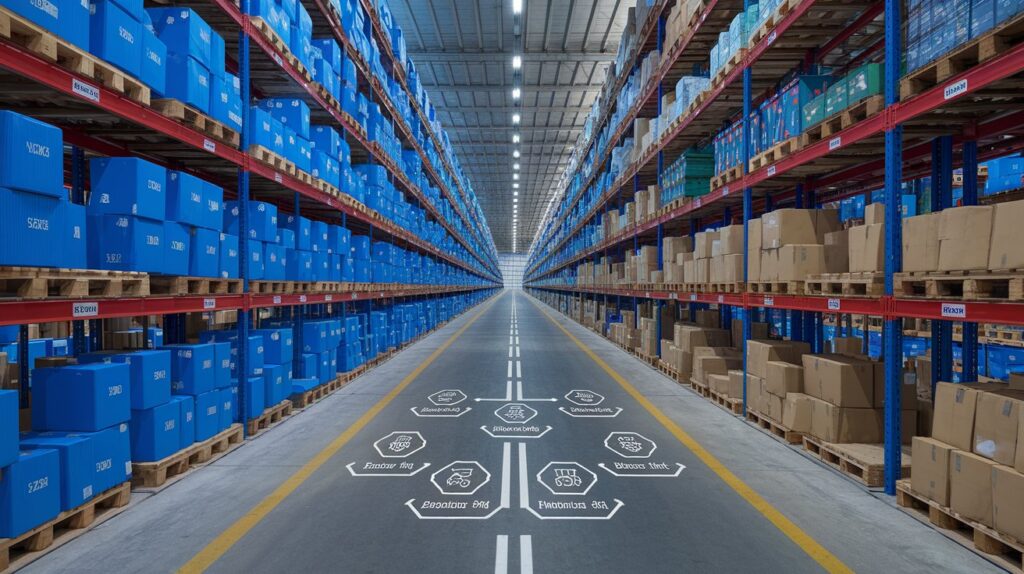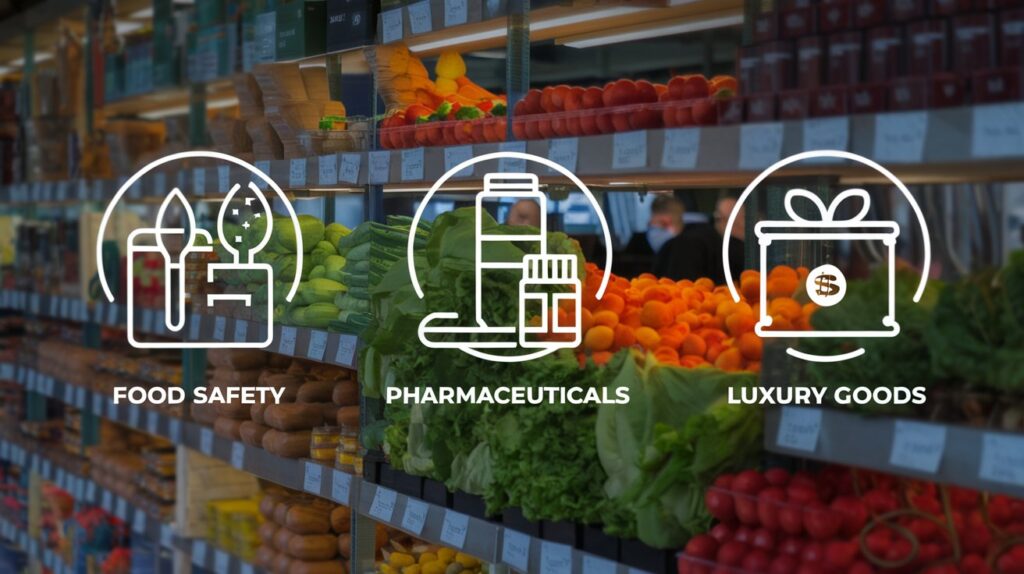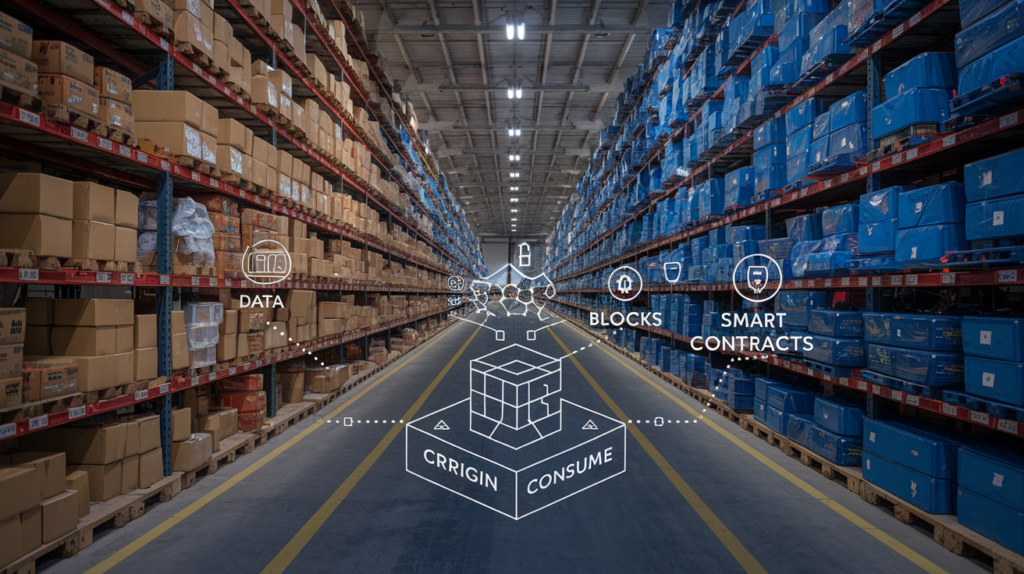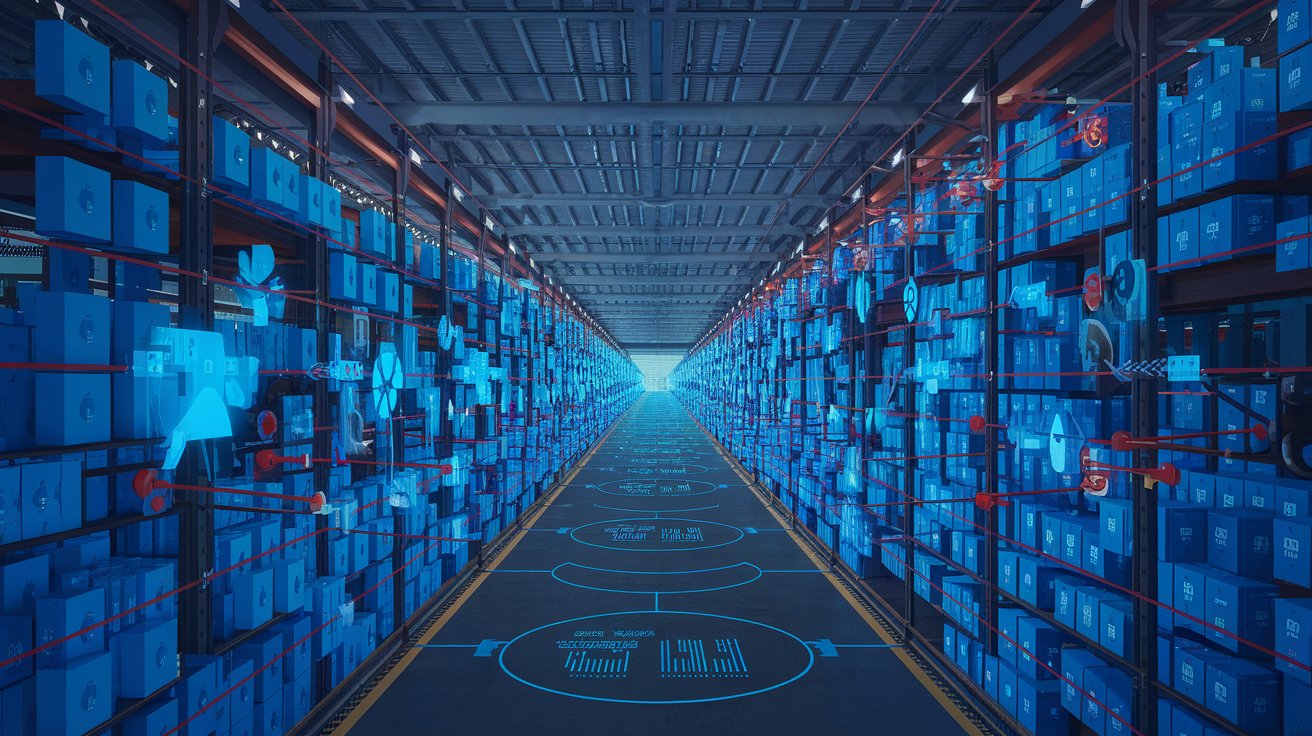The role of blockchain in supply chain management is revolutionizing how businesses operate by ensuring transparency, efficiency, and trust across the entire process. In an era where consumers demand accountability and businesses face increasing complexity in their global networks, blockchain offers a groundbreaking solution. This technology provides a secure and tamper-proof digital ledger, enabling real-time tracking of goods and verifying their authenticity at every step.
Recent studies indicate that 70% of companies are prioritizing blockchain adoption to improve their supply chain operations, as it reduces fraud, enhances traceability, and lowers costs. From tracking food safety to ensuring the authenticity of luxury goods, blockchain is addressing critical challenges that traditional systems fail to solve. Its adoption is not just a technological advancement—it’s a strategic necessity for businesses aiming to thrive in today’s competitive landscape.
Table of Contents
Introduction to Blockchain in Supply Chain Management
Blockchain in supply chain management enables secure, transparent, and immutable record-keeping. It allows stakeholders to trace every transaction, ensuring authenticity and accuracy. This focus on trust and efficiency is reshaping industries globally.
Benefits of Blockchain in Supply Chains

Enhanced Transparency
Blockchain provides a shared, tamper-proof ledger that allows all participants to access real-time information about products. This reduces miscommunication and enhances trust among stakeholders.
Improved Traceability
With blockchain, companies can trace the origin, movement, and authenticity of goods across the supply chain. This is particularly beneficial for industries like food, pharmaceuticals, and luxury goods.
Cost Efficiency
By reducing the reliance on intermediaries, blockchain minimizes transaction costs. Smart contracts further automate processes, making operations seamless and cost-effective.
Real-World Applications of Blockchain in Supply Chains

- Food Safety: Blockchain tracks food products from farms to tables, ensuring quality and safety.
- Pharmaceuticals: It combats counterfeit drugs by verifying the authenticity of medications.
- Luxury Goods: Blockchain guarantees the authenticity of luxury products, protecting brands and consumers.
The role of blockchain in supply chain management: Challenges and Solutions

While blockchain offers immense potential, challenges like scalability, integration, and regulatory hurdles remain. Addressing these issues with advanced blockchain protocols and global collaboration is critical for widespread adoption.
Conclusion
The role of blockchain in supply chain management is not just transformative; it’s becoming essential for businesses striving to remain competitive in an increasingly complex global market. According to a recent report by PwC, over 84% of executives are actively exploring blockchain solutions to enhance their supply chain operations. The technology ensures real-time tracking, reduces counterfeiting, and improves overall efficiency, resulting in cost savings of up to 30% in logistics and supply chain processes.
The role of blockchain in supply chain management: As industries like food, pharmaceuticals, and luxury goods face rising demands for transparency and accountability, blockchain adoption is accelerating. For example, IBM’s Food Trust blockchain platform has already reduced the time it takes to trace food origins from seven days to just 2.2 seconds. Similarly, Maersk and Tradelines are reshaping global logistics by processing over 10 million supply chain events daily, improving efficiency and collaboration.
By overcoming challenges such as scalability and regulatory hurdles, blockchain has the potential to redefine the future of supply chains, making them more resilient, transparent, and customer centric. Businesses that embrace blockchain now are setting themselves up to lead in a rapidly evolving, technology-driven world.





